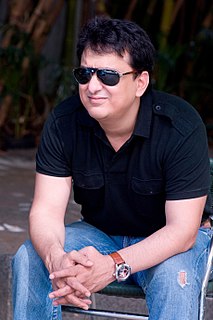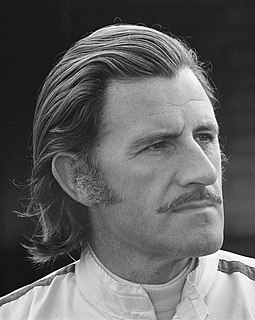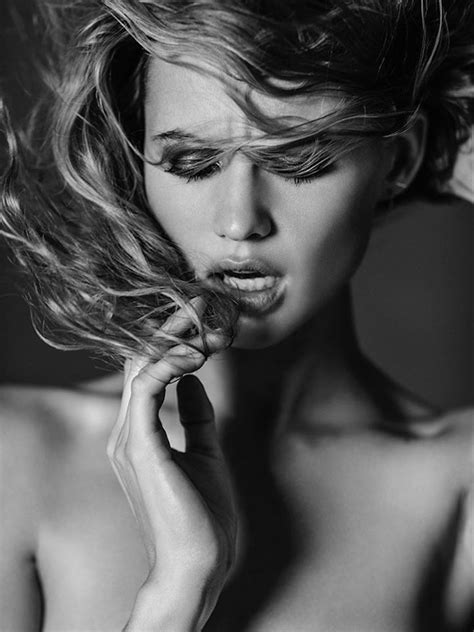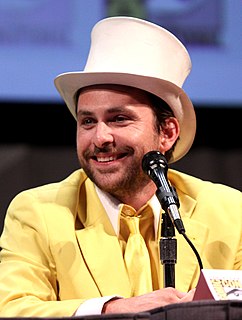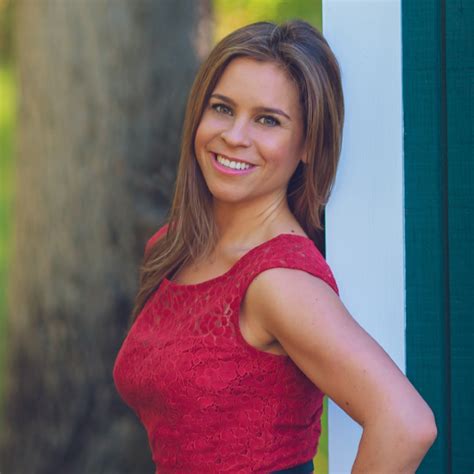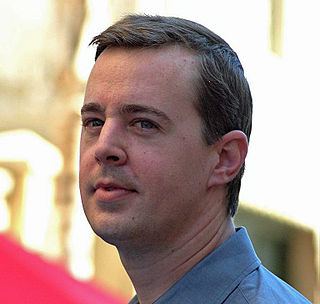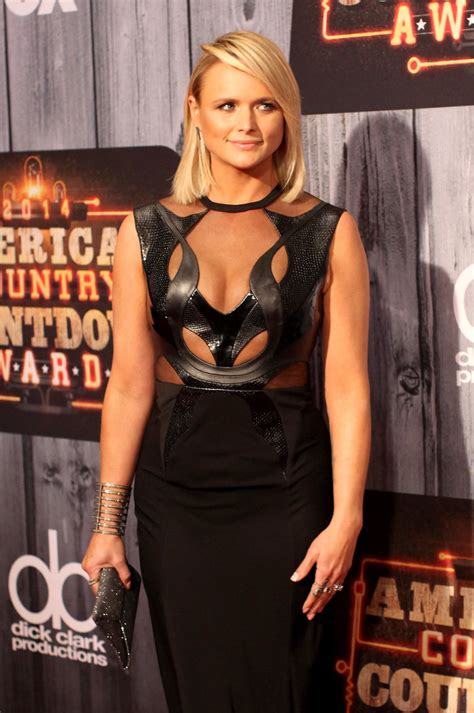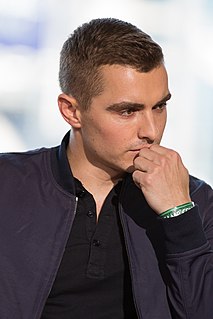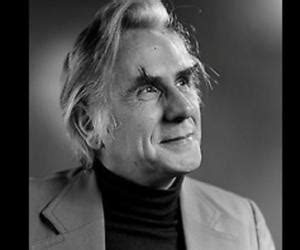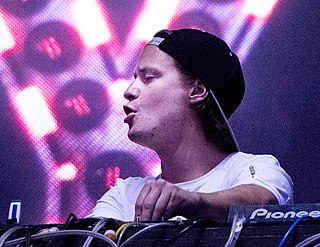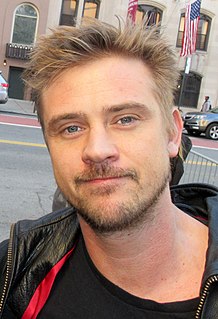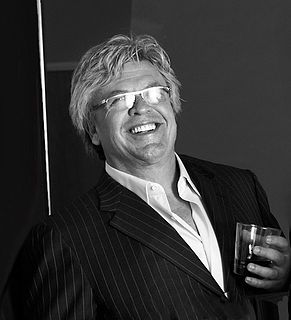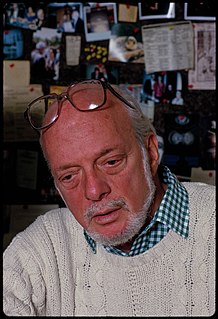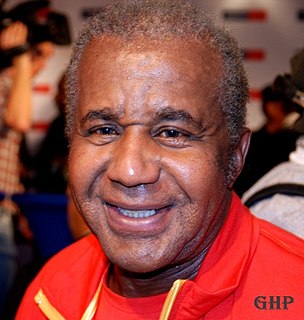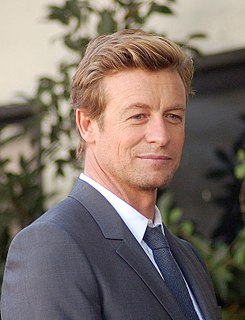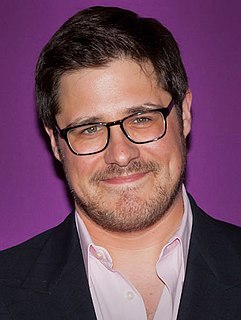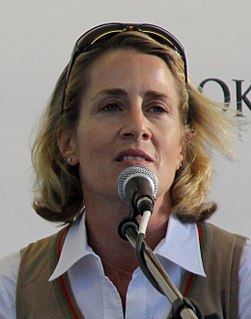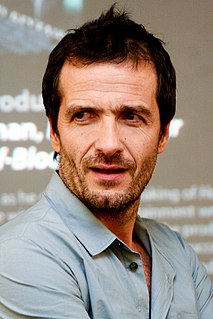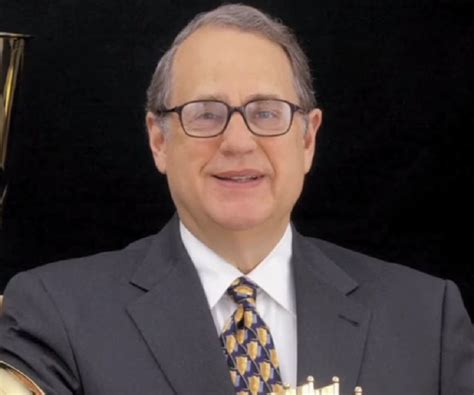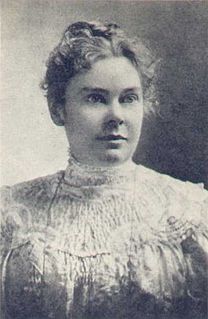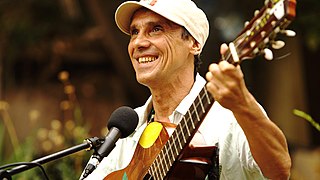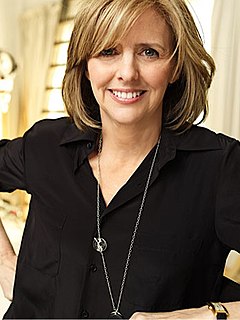Top 1200 Editing Room Quotes & Sayings - Page 20
Explore popular Editing Room quotes.
Last updated on November 24, 2024.
We don't have a clue what's really going down, we just kid ourselves that we're in control of our lives while a paper's thickness away things that would drive us mad if we thought about them for too long play with us, and move us around from room to room, and put us away at night when they're tired, or bored.
I want to make a world more magical than my own. I don't care if it makes sense, I don't care if it's ridiculed or if, rather than a neat round planet that goes around forever, it ends with a cliff that falls off into nothing. I want to have my eyes wide open, and I want to see this room and at the same time, not this room.
A few more days, and this essay will follow the Defensio Populi to the dust and silence of the upper shelf... For a month or two it will occupy a few minutes of chat in every drawing-room, and a few columns in every magazine; and it will then be withdrawn, to make room for the forthcoming novelties.
A woman with confidence is hypnotic. A smile is mesmerizing. Presence, openness, a sense of humor—these are all things that make a woman attractive. We’ve all experienced the presence of someone who walks in and lights up a room. It’s never about their looks but about their energy. Allow yourself to light up the room by being your beautiful self.
Don't give anybody up." He stroked her. "Or leave anybody out. Me and you both left her out today, and I'm ashamed for us." "There just wasn't room in today for it ... He said, "There's room for everything, and time for everybody, if you take your day the way it comes along and try not to be much later than you can help."
In editing, you really face what the movie is. When you shoot it, you have this illusion that you're making the masterpieces that you're inspired by. But when you finally edit the movie, the movie is just a movie, so there is always a hint of disappointment, particularly when you see your first cut.
I've stayed in so many hotel rooms that I'm shocked if, when I stay in a hotel room, the hotel phone isn't on the desk. Then I'm like, "This isn't a real hotel room." If there's not outlets next to the desk, or if they have an iPhone adapter for an iPhone 4, that's when I'm sitting there annoyed. I understand that it's ridiculous, but that's just me spending way too much time in hotels.
The records that I like, they have life and warmth and soul in them. Like the slap back on Scotty Moore's guitar on 'Mystery Train.' You're not gonna get that in a computer. You're gonna want a live room, you're gonna wanna bounce the tape, you're gonna want real musicians, in a room, vibin' off of each other.
I no longer do a film for the wrong reasons. I have to be convinced ethically and morally. Both the director and I have to be on the same page. There are just five songs in most films these days, and they have to be amazing. There has to be a twist in the screenplay. The editing has to be crisp. Your hard work should show, but effortlessly.
I only like the live audience. I don't even like to do standup where it's being filmed. Because it affects the way the audience responds to what you say, because it makes them uncomfortable. You have to perform in a light room, and I prefer a dark room. But I love to perform, and I don't really see myself doing any television at all.
Virginity is now a mere preamble or waiting room to be got out of as soon as possible; it is without significance. Old age is similarly a waiting room, where you go after life's over and wait for cancer or a stroke. The years before and after the menstrual years are vestigial: the only meaningful condition left to women is that of fruitfulness.
The state of mind of a fighter is so important. I don't like to see a fighter stay locked up in a room. Sometimes it works against them. They think and they worry. They dwell, sitting in that dark room. You come back and they're psyched out. I like to see boxers eat and then walk, mingle with people. You have to have a certain amount of movement.
... up to this date, I have never been shut up in a separate room, or hedged off with any observances. My study, all the study I have attained to, is the little 2nd drawing room where all the (feminine) life of the house goes on; and I don't think I have ever had two hours undisturbed (except at night, when everybody is in bed) during my whole literary life.
I wanted to create a film that hadn't been created yet. I studied film for many years. The Room is almost 20 years of my work. You see, I understand young people unlike the media. I don't expect people to love The Room 100% but I respect that people enjoy it and that maybe it opens certain doors for them. That's what makes me happy.
My roomate at 'Harvey' is this guy Morgan Spector, an actor in town, and I've taught him Hive and Fastrack. Others have played For the Win, but Cards Against Humanity has been the dressing room hit. We've had the understudies, even Jim Parsons playing it. Our dressing room is practically sponsored by Cards Against Humanity.
I used to be an editor and I was editing young adult series. I didn't really like the books that I was reading, so I decided that I would write a book about something I'd want to read if I was 16. It turned into a Cinderella story... I developed a proposal and the characters of 'Gossip Girl' for my job.
You should not actually stay in bed for very long awake, because your brain is this remarkably associative device, and it quickly learns that the bed is about being awake. So you should go to another room - a room that's dim. Just read a book - no screens, no phones - and, only when you're sleepy, return to the bed.
And old Dave, he'd go up to his room, y'understand, put on his green velvet slippers - I'll never forget - and pick up his phone and call the buyers, and without leaving his room, at the age of eighty-four, he made his living. And when I saw that, I realized that selling was the greatest career a man could want.
But there's something about the simplicity of Auschwitz... there's just nothing. There's just photographs, there's a room full of limbs, a room full of hair, and then you go into the place where the gas chambers were. You walk down these halls and the efficiency of it is so inhuman. The place is so powerful, just for its utter bald, bare simplicity.
Everyone loved my father. He was so nice that people took advantage of him. We were lower middle class. I slept in the hallway on a cot that rolled away during the day, and my younger brother and sister slept in my parents' room. My goal as a kid was to someday have my own room and to own a car - and I wanted to be able to take care of my parents.
Outside, you don't hear a single bird, and a deathly, oppressive silence hangs over the house and clings to me as if it were going to drag me into the deepest regions of the underworld.... I wander from room to room, climb up and down the stairs and feel like a songbird whose wings have been ripped off and who keeps hurling itself against the bars of its dark cage.





